Respiratory Microanatomy, Model, & Experiment
1/16
There's no tags or description
Looks like no tags are added yet.
Name | Mastery | Learn | Test | Matching | Spaced |
|---|
No study sessions yet.
17 Terms
Label the Following. [nasal vestibule, nasal cavity, esophagus, pharynx, larynx]
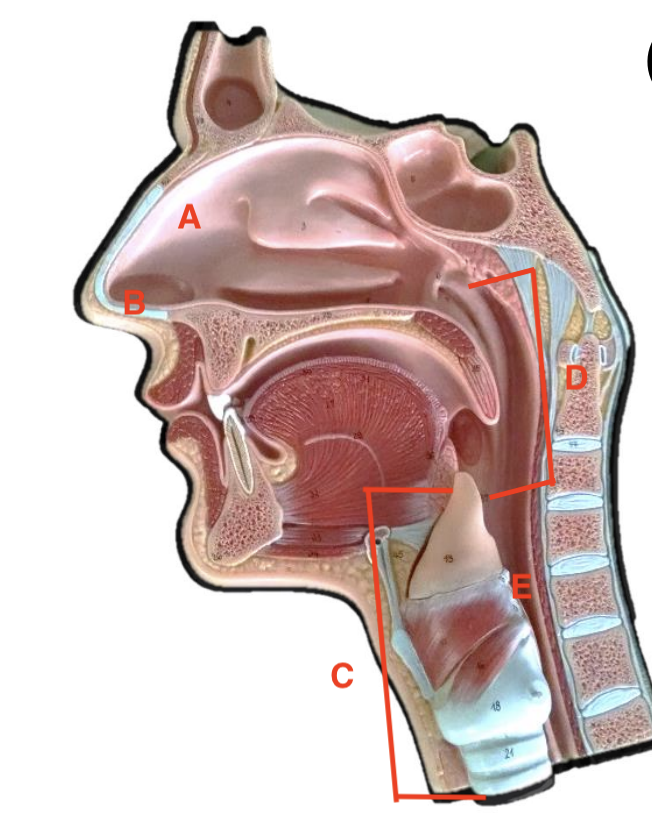
a = nasal cavity
b = nasal vestibule
c = larynx
d = pharynx
e = esophagus
Match the following. [naris, ala, bridge, philtrum]
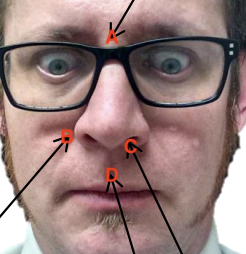
a = bridge
b = ala
c = naris
d = philtrum
Match the following of the upper respiratory tract. [superior nasal conchae, middle nasal conchae, inferior nasal conchae, hard palate, soft palate, eustachian tube, nasopharynx, oropharynx, laryngopharynx, epiglottis, uvula, sphenoid sinus, frontal sinus]
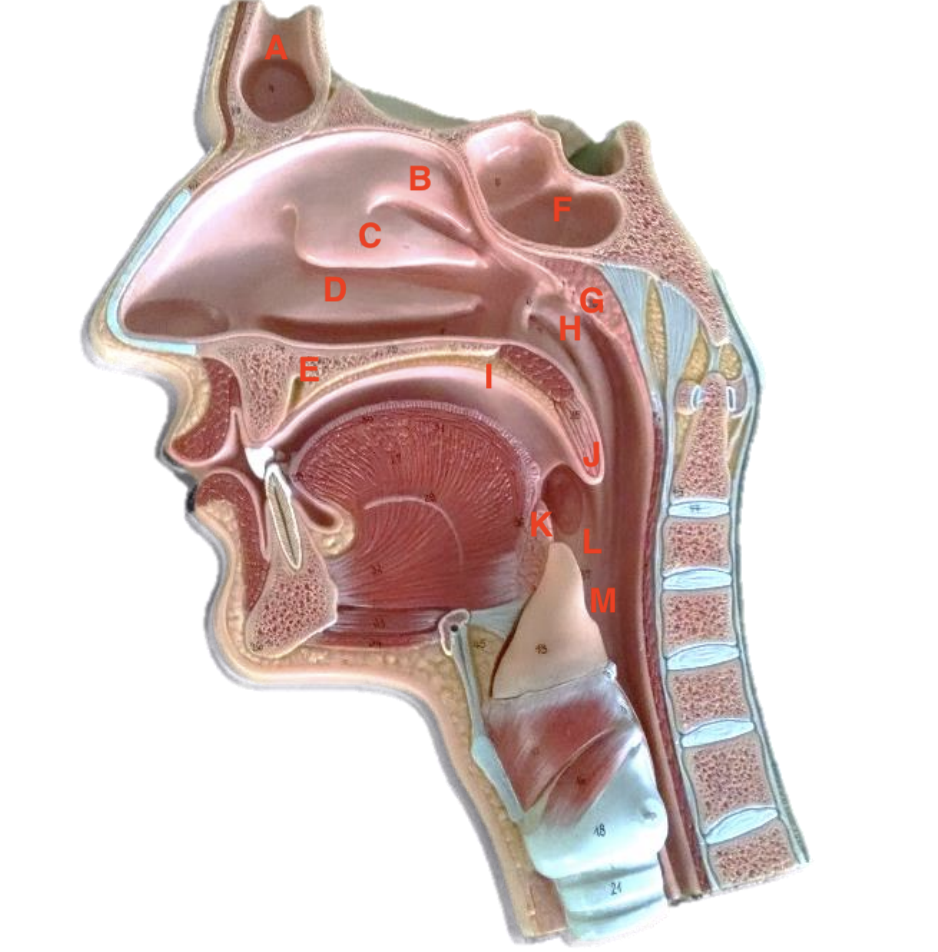
a = frontal sinus
b = superior nasal conchae
c = middle nasal conchae
d = inferior nasal conchae
e = hard palate
f = sphenoid sinus
g = eustachian tube
h = nasopharynx
i = soft palate
j = uvula
k = epiglottis
l = oropharynx
m = laryngopharynx
Label the upper respiratory tract. [all of the lobes, fissures, apex, base, diaphragm]
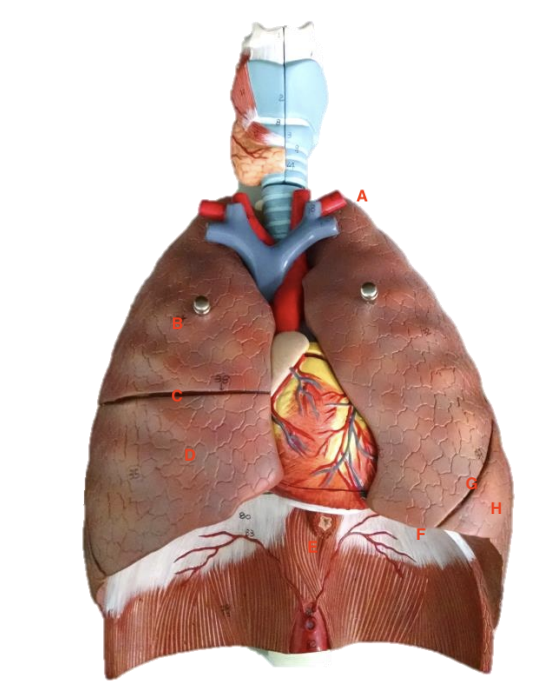
a = apex
b = upper lobe
c = horizontal fissure
d = middle lobe
e = diaphragm
f = base
g = oblique fissure
h = lower lobe
Label the upper respiratory tract. [epiglottis, vestibular fold, vocal cord, thyroid cartilage, cricoid cartilage, tracheal cartilage]
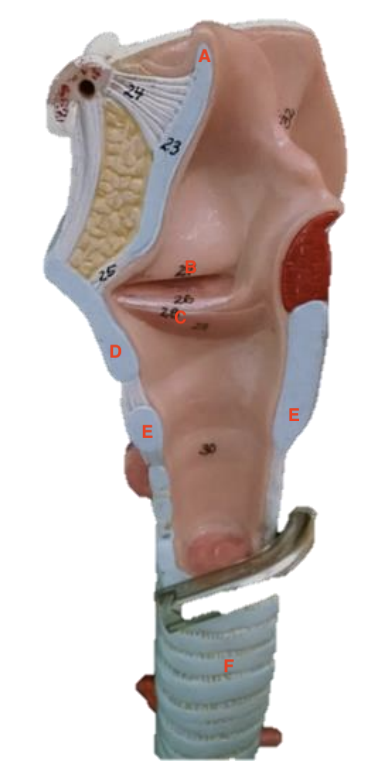
a = epiglottis
b = vestibular fold
c = vocal cord
d = thyroid cartilage
e = cricoid cartilage
f = tracheal cartilage
Label the cartilage/ligament. [hyoid bone, thyroid cartilage, thyroid membrane, tracheal cartilage, median cricothyroid ligament]
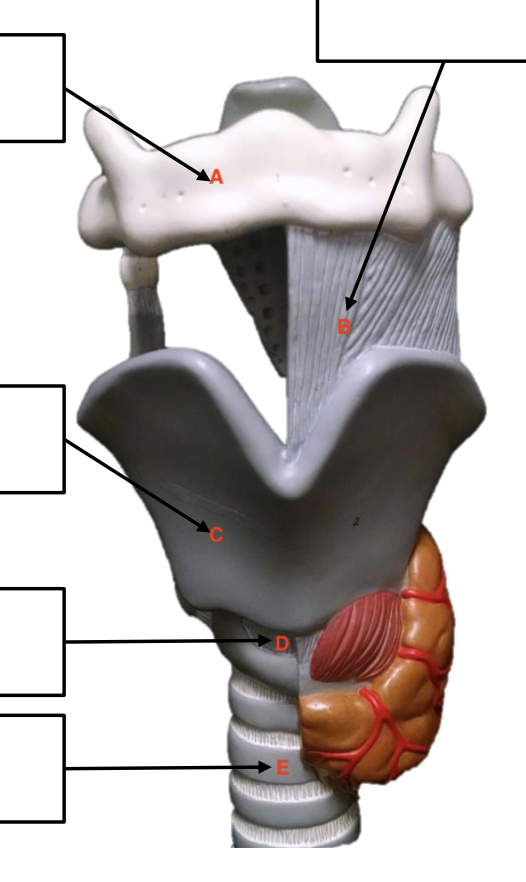
a = hyoid bone
b = thyroid membrane
c = thyroid cartilage
d = median cricothyroid ligament
e = tracheal cartilage
Label the cartilage/ligament. [arytenoid cartilage, corniculate cartilage, cricoid cartilage, epiglottis]
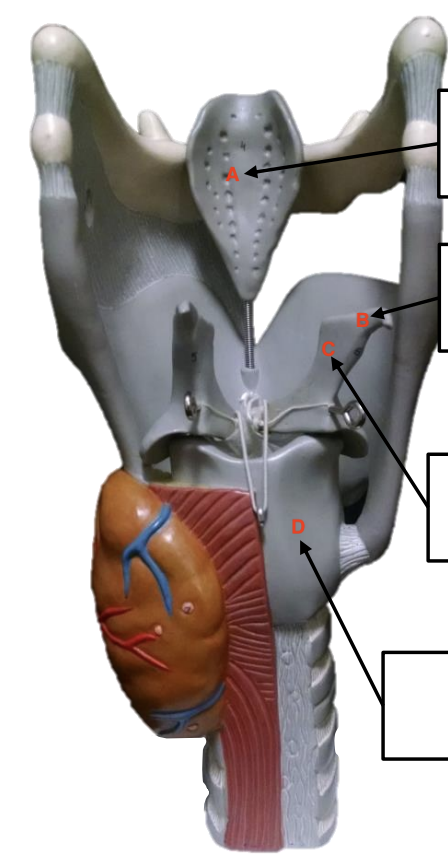
a = epiglottis
b = corniculate cartilage
c = arytenoid cartilage
d = cricoid cartilage
Label the upper respiratory tract. [ vocal cords, vestibular folds, epiglottis, glottis, arytenoid cartilage]
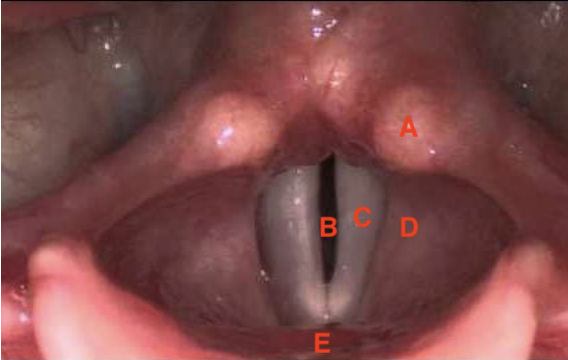
a = arytenoid cartilage
b = glottis
c = vocal cords
d = vestibular folds
e = epiglottis
Label the upper to lower respiratory tract. [ thyroid cartilage, cricoid cartilage, trachea, carina, right primary bronchus, left primary bronchus, secondary bronchi, tertiary bronchi]
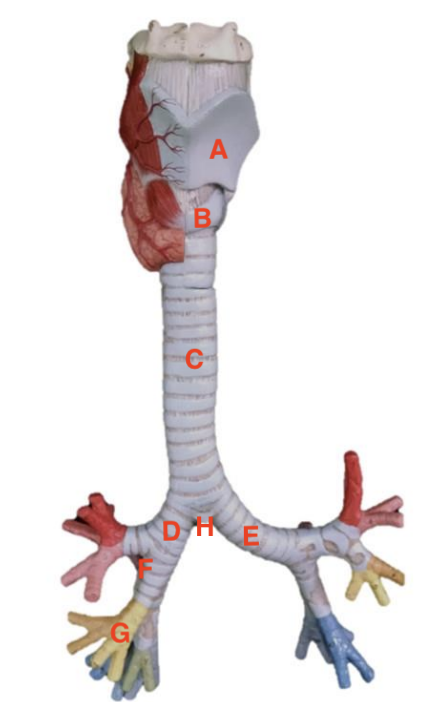
a = thyroid cartilage
b = cricoid cartilage
c = trachea
d = right primary bronchus
e = left primary bronchus
f = secondary bronchi
g = tertiary bronchi
h = carina
Label the lower respiratory tract. [cardiac notch, pulmonary artery, pulmonary vein, abdominal aorta]
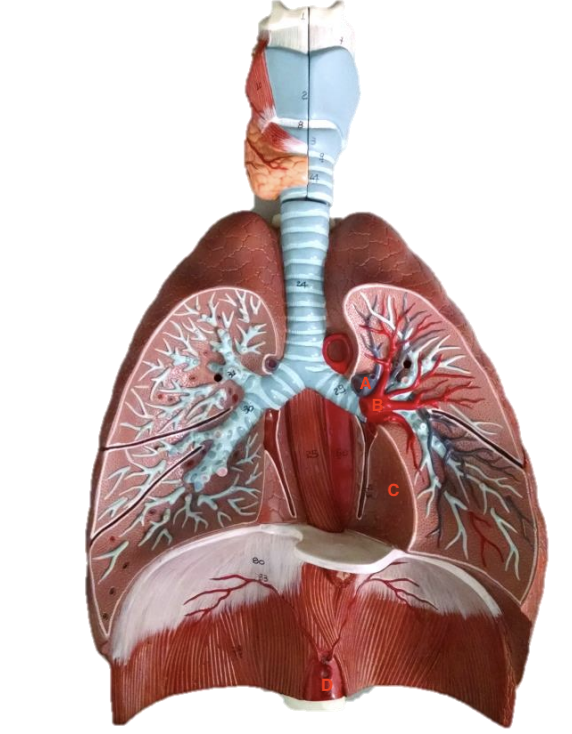
a = pulmonary arteries
b = pulmonary veins
c = cardiac notch
d = abdominal aorta
Label the following. [bronchiole, alveoli, alveolar sac, pulmonary venule, pulmonary arteriole, capillary network]
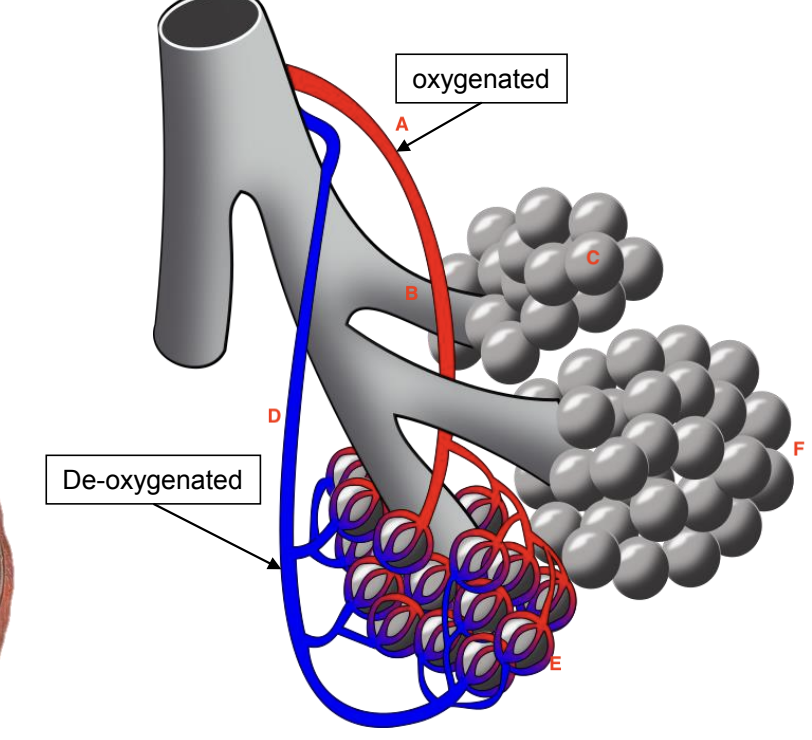
a = pulmonary venule
b = bronchiole
c = alveoli
d = pulmonary arteriole
e = capillary network
f = alveolar sac
Label the tracheal histology. [pseudostratified ciliated columnar epithelium, goblet cell, cilia]
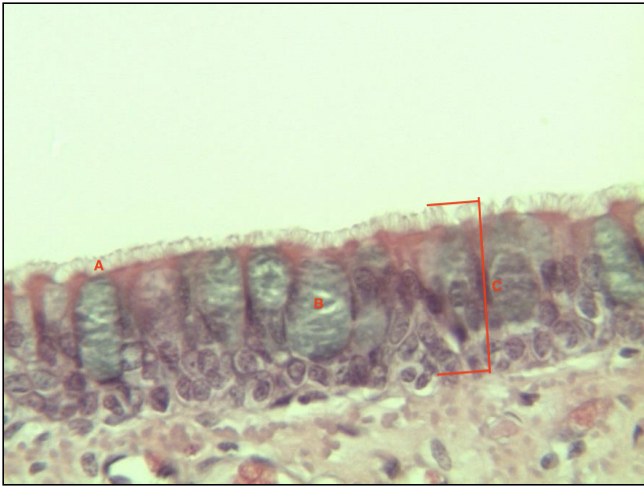
a = cilia
b = goblet cell
c = pseudostratified ciliated columnar epithelium
Label the tracheal cartilage histology. [hyaline cartilage, mucosa, submucosa, lumen, mucous gland]
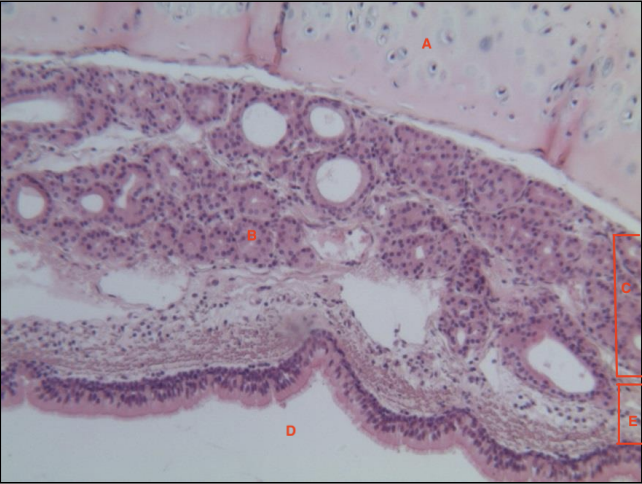
a = hyaline cartilage
b = mucous gland
c = submucosa
d = lumen
e = mucosa
Label the following lung histology. [simple squamous epithelium, smooth muscle, alveoli, alveolar sac, bronchiole, arteriole]
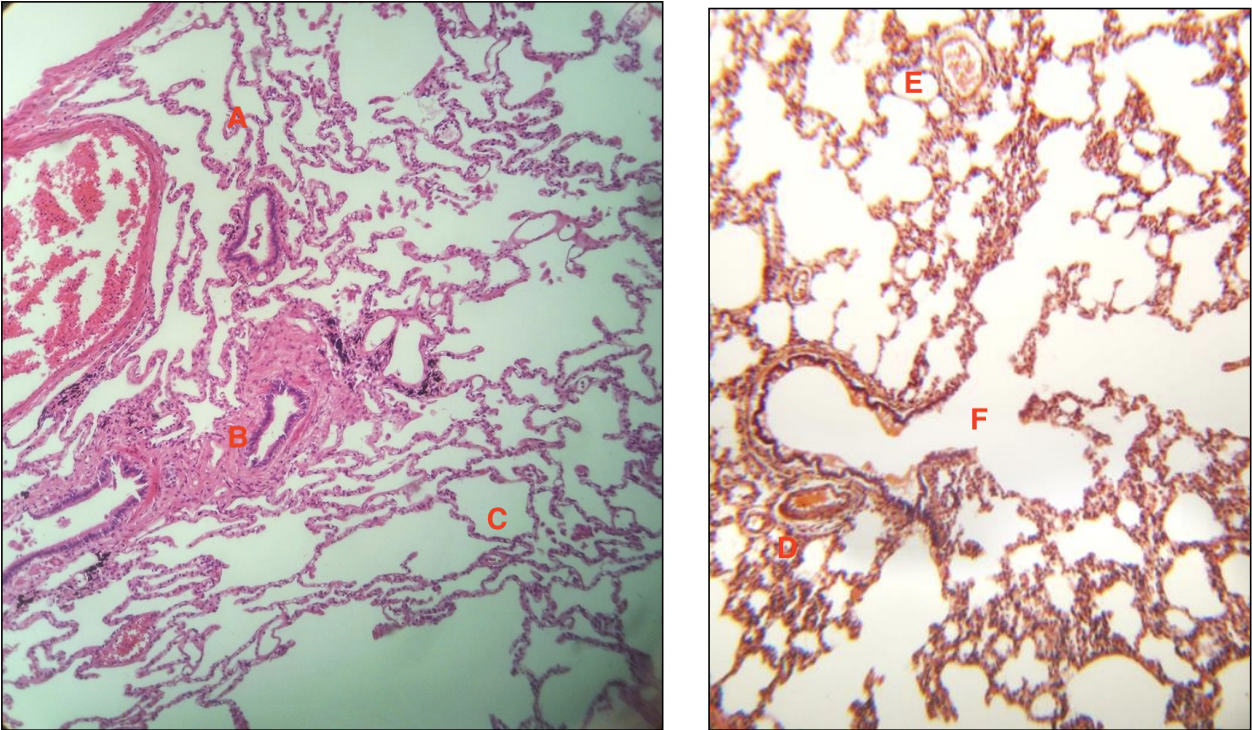
a = simple squamous epithelium
b = smooth muscle
c = alveolar sac
d = arteriole
e = alveoli
f = bronchiole
Label the larynx. [cartilage, false vocal cord, true vocal cord]
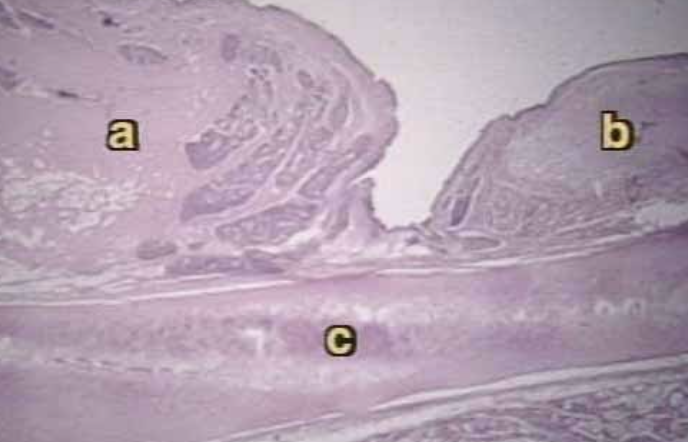
a = false vocal cord
b = true vocal cord
c = cartilage
Label the spirometry graph. [tidal volume, inspiratory reserve volume, expiratory reserve volume, vital capacity, residual volume, volume, time]
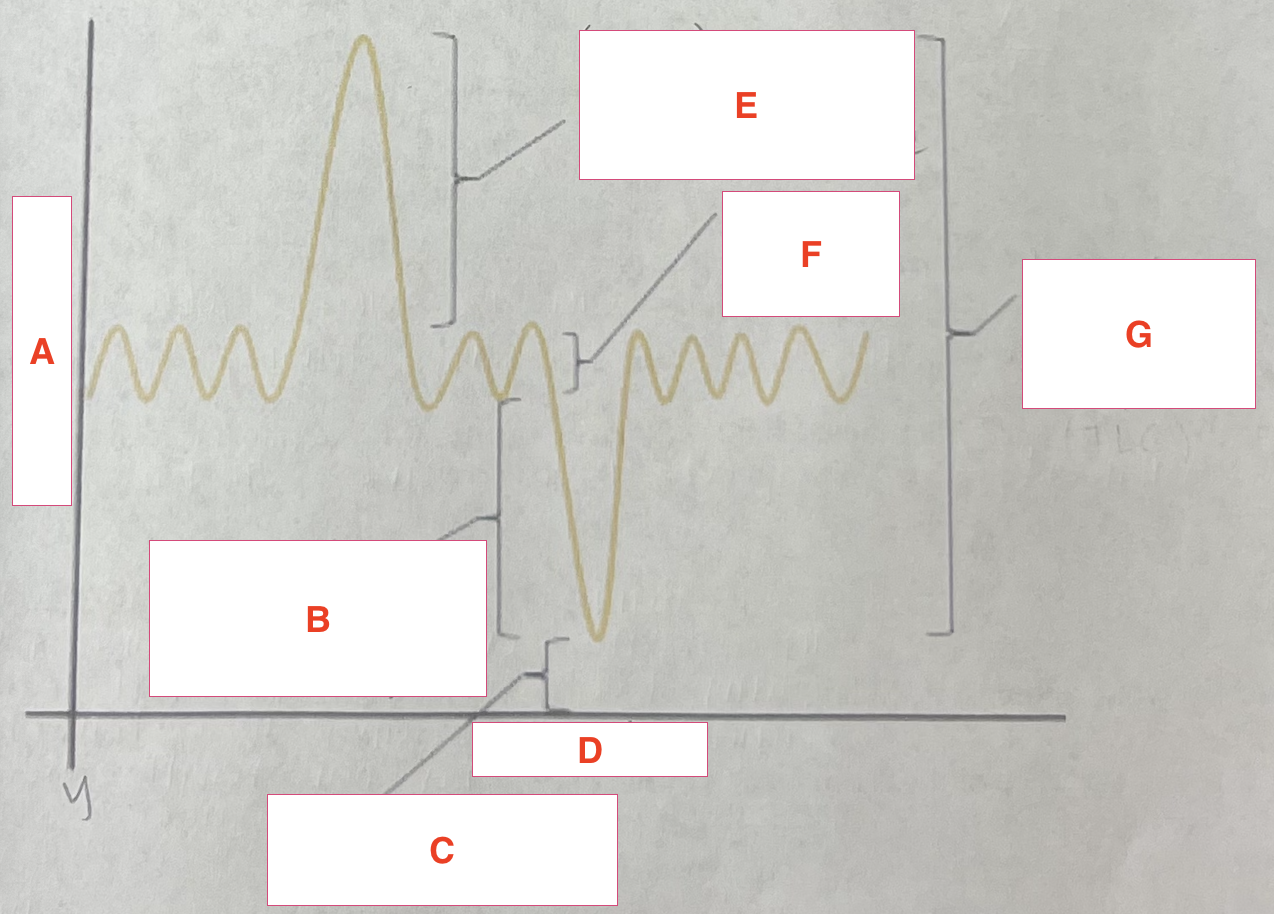
a = volume
b = expiratory reserve volume
c = residual volume
d = time
e = inspiratory reserve volume
f = tidal volume
g = vital capacity
Match the word to the definition.
- expiratory reserve volume (ERV)
- forced expiratory capacity volume 1 (FEV1)
- forced vital capacity (FVC)
- inspiratory reserve volume (IRV)
- peak expiratory flow (PEF)
- residual volume (RV)
- tidal volume (TV)
- total lung capacity (TLC)
- vital capacity (VC)
a. Volume of air inhaled or exhaled in a normal breath.
b. Maximum volume of air that can be inhaled after a normal inhalation.
c. Maximum volume of air that can be exhaled after a normal exhalation.
d. The total amount of air that can be exhaled after a maximal inhalation,
= TV + IRV + ERV
e. The volume of air remaining in the lungs after maximal exhalation (not directly measurable by spirometer).
f. Total volume of the lungs
= VC + RV
g. maximum speed of forceful exhalation after a maximum inhalation
h. volume of air forcefully exhaled, in the first second, after maximum inhalation
i. volume of air forcefully exhaled after maximum inhalation
a = TV
b = IRV
c = ERV
d = VC
e = RV
f = TLC
g = PEF
h = FEV1
i = FVC